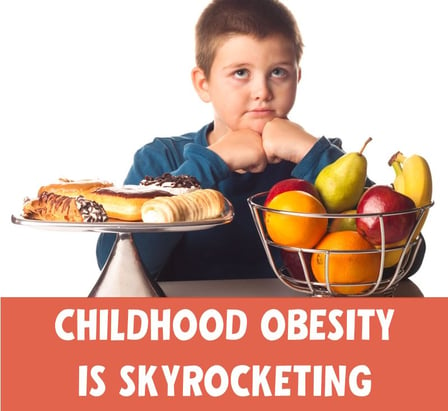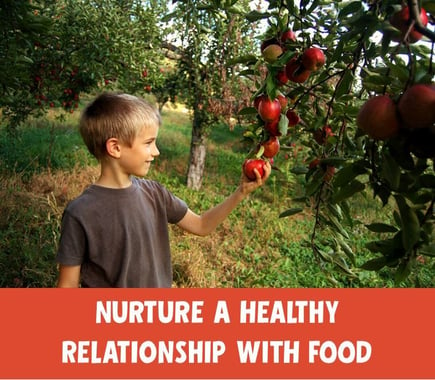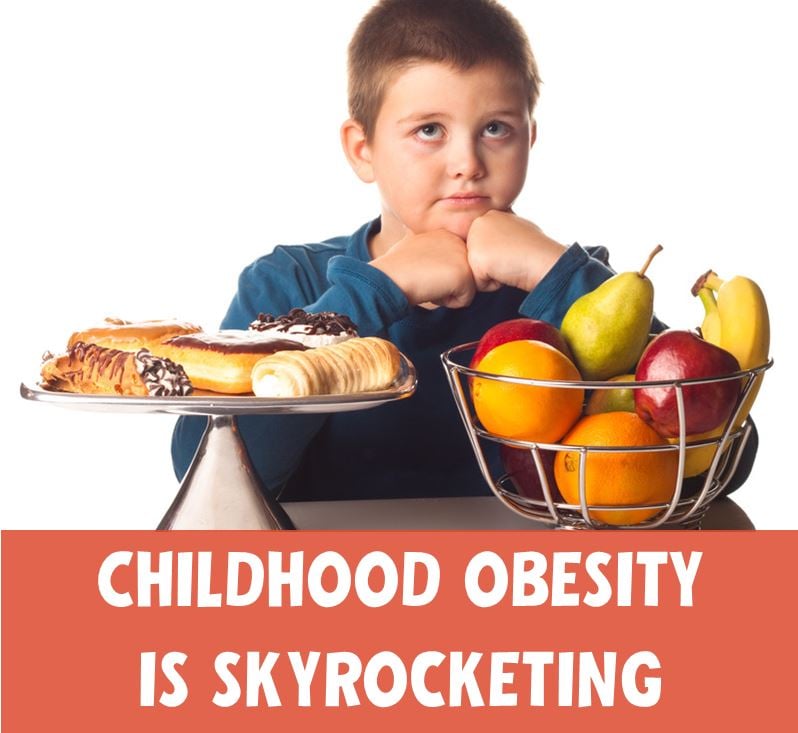 When we think of obesity, diabetes, high blood pressure, high cholesterol and heart disease, we tend to think of those who are in the later stages of life. That’s because even just 30 years ago, childhood obesity wasn’t a major issue. Unfortunately, we have seen some unsettling child health concerns arise within a relatively short period of time.
When we think of obesity, diabetes, high blood pressure, high cholesterol and heart disease, we tend to think of those who are in the later stages of life. That’s because even just 30 years ago, childhood obesity wasn’t a major issue. Unfortunately, we have seen some unsettling child health concerns arise within a relatively short period of time.
According to the Center for Disease Control and Prevention (CDC.gov) the percentage of children ages 6-11 in the U.S. who were obese increased from 7% in 1980 to nearly 18% in 2012. The CDC also identified that the percentage of adolescents who were obese (ages 12-19 years of age) skyrocketed from 5% to 21% within the same time frame. These numbers don’t even include children and adolescents in the overweight category. That would bring the segment of youth in America with an unhealthy weight to just over one-third of the population. These are pretty startling numbers considering this puts our next generation at major risk of lifelong struggles with weight, health, and reduced quality as well as length of life.
It is expected that children and adolescents will have a somewhat fluctuating body weight and composition as they mature. They shouldn’t be ridiculed for their weight, put on highly restrictive diets, nor expected to be thin. Instead, because excess weight is most often a result of consuming more calories than what is burned, parents should focus on two goals: 1) helping their child learn healthy eating habits; and, 2) helping them incorporate and enjoy physical activity within their lifestyle. Children who are overweight or obese due to unhealthy habits are likely to maintain those behaviors and continue to experience obesity as an adult. Encouraging healthy habits is a meaningful way to acknowledge childhood obesity awareness.
 Growing up, my mom and dad encouraged me to try every sport in the book so that I could find what I personally liked to do. I played basketball, soccer and tennis, ran track and cross country, figure skated, and also took ballet, tap, and jazz dance. My mom would also pack me snacks or provide me with healthy meals during these activities and also let me cook or bake with her. They didn’t force me to do anything; they just wanted me to enjoy what I was doing. And I did. Without realizing it at the time, my parents were not only teaching me a healthy lifestyle, they were helping me realize that I could absolutely relish it. This has greatly affected who I am as a person today.
Growing up, my mom and dad encouraged me to try every sport in the book so that I could find what I personally liked to do. I played basketball, soccer and tennis, ran track and cross country, figure skated, and also took ballet, tap, and jazz dance. My mom would also pack me snacks or provide me with healthy meals during these activities and also let me cook or bake with her. They didn’t force me to do anything; they just wanted me to enjoy what I was doing. And I did. Without realizing it at the time, my parents were not only teaching me a healthy lifestyle, they were helping me realize that I could absolutely relish it. This has greatly affected who I am as a person today.
When I have children, I hope to also pass on the joy of a healthy lifestyle and I encourage you to do the same.
Here are some key points to focus on for healthy habits:
- Teach intuitive eating and reasonable serving sizes. If they are truly hungry, help your children find healthy snacks that will satisfy them throughout the day, like a bowl of whole grain oatmeal with a drizzle of honey or a slice of whole grain toast with peanut butter and banana. If they are truly full, don’t force your children to overeat or learn that all plates must be cleared. Also, consider serving meals on the ‘salad dishes.’ Nowadays, this plate size is often a healthier guide for portion control.
- Teach them to cook. Letting your children in the kitchen when you’re cooking, preparing snacks, or even packing lunches helps your children understand how healthy meals are made. It’s also a fun moment to enjoy together. If you only go out to eat or bring home take-out, your child will most likely continue to do that as an adult because they never learned how to cook in the kitchen. Also, consider starting your children off with healthy food choices while they are young. Most kids who eat whole wheat bread as a child will continue that practice as they grow up.
 Teach them farm to table. Even something as simple as having a garden in your backyard in which you grow crisp fresh veggies can develop a healthy relationship with food. Understanding that food is not indispensable and connecting where it comes from can reduce food waste and aid in making a habit of healthy serving sizes. It also makes fresh produce exciting!
Teach them farm to table. Even something as simple as having a garden in your backyard in which you grow crisp fresh veggies can develop a healthy relationship with food. Understanding that food is not indispensable and connecting where it comes from can reduce food waste and aid in making a habit of healthy serving sizes. It also makes fresh produce exciting!
- Teach them physical activity. Get them involved in every sport of physical activity they are interested in. It may take trying 20 different sports for them to find the one they will love and stick with for the rest of their life. In my case, the very last sport I tried during my last two years of high school is what I continue to do today . . . long distance running! This is also a great way for kids to make friends that also have healthy habits. Children involved in sports tend to do better in school as well.
What are your favorite ways to teach your children healthy habits? Let us know in the comments.
Want to learn how whole grains can support your family's healthy habits?
You may also enjoy these posts:
- 5 Healthy Tips From Our Bakery Nutritionist For Parents
- 10 Stealth Health Strategies for Better Nutrition
- Celebrate Farm to School Month by Supporting Local Farms & Food
- Family Meals Month: Strengthen Relationships With Family & Real Food





